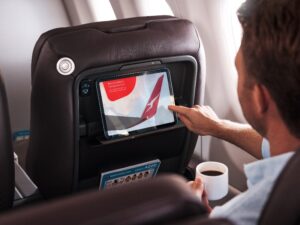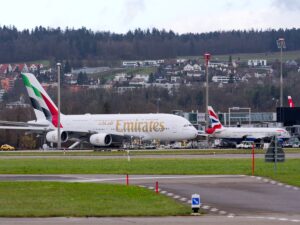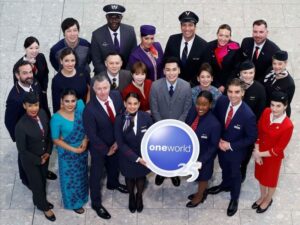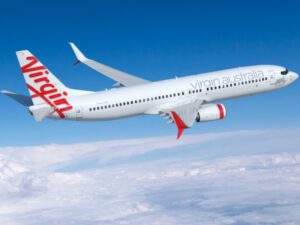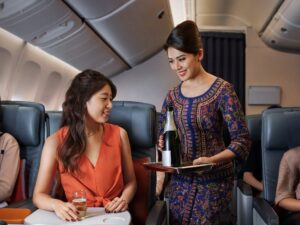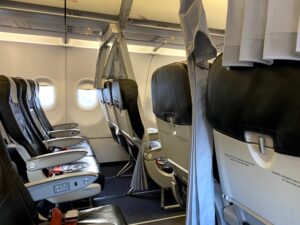
For airlines, the release of frequent flyer reward seats requires a fine balance. They need to release enough seats that frequent flyers continue to see value and engage in the airline’s loyalty program. But they don’t want to give away too many seats that they could otherwise sell at full price, because this has a large opportunity cost.
With demand for reward seats higher than ever before, airlines are getting creative with how they release award availability. Some have added a second tier of rewards that cost more, but are more widely available. Others are simply blocking members of partner airlines – or those without status – from accessing certain seats.
They need to do this because the amount of points in circulation continues to grow while the supply of airline seats isn’t quite keeping up.
Contents
The blessing and curse of partner airline awards
Of course, frequent flyers can also use their points to book reward flights with any of their airline’s partners. In general, this is great for frequent flyers as it opens up more opportunities to use points. For example, since Virgin Australia doesn’t fly to many overseas destinations, the ability to redeem Velocity points on partner airlines adds immense value to the Velocity Frequent Flyer program.
But this also creates situations where frequent flyers of one or two partner airlines are snapping up all the reward seats on certain routes – leaving none left for the airline’s own loyal customers.
For example, Australian Frequent Flyer understands that Qantas Frequent Flyer members tend to book a disproportionately high percentage of Classic Reward seats on Japan Airlines’ flights to Australia. It also appears that Air Canada Aeroplan members have been snapping up a lot of Etihad premium cabin reward seats.

Some airlines even sell points directly to members
Programs such as Aeroplan, as well as the likes of Avianca LifeMiles, actively encourage members to buy points or miles that they can then use to book reward seats on partner airlines. That’s not necessarily a bad thing.
Savvy frequent flyers who know how to game the system, including many AFF members, save a lot of money on Business & First Class flights by buying points. In fact, the ability to easily accumulate points makes our hobby a lot more accessible, allowing more people to benefit.
It’s not just flyers who benefit. The frequent flyer program makes money from selling the points. And the operating airline earns some revenue by filling a seat that probably would have otherwise flown empty. (Since airlines control the availability of reward seats, they wouldn’t generally release reward seats on full flights.)
Unfortunately, this model breaks if frequent flyers expect to be able to use points to book seats that airlines could easily sell at full price. It’s also problematic when airlines are giving away lots of reward seats, but their own frequent flyers miss out.
If frequent flyers perceive that there are never any reward seats on flights or cabins they want to book, they won’t be enticed to continue earning points or engage with the airline’s loyalty program. Airlines make a lot of money by selling points, and loyalty programs help airlines to keep customers flying and spending a lot more. So airlines can’t simply turn off the tap – instead, they need to get creative.
Two-tiered reward flight pricing
To try to solve the award availability problem, numerous airlines have created a second tier of reward seats. These cost more miles but have better availability, giving frequent flyers a second chance at redeeming points for flights where “regular” reward seats are sold out.
Singapore Airlines’ Saver and Advantage awards are one example of this. Advantage awards are tied to the availability of certain commercial fare classes, and are only available to book using KrisFlyer miles. Advantage awards also have a bit more flexibility, including more generous stopover allowances.

Emirates Skywards similarly offers two tiers of Classic Reward flights. In the example below, EK431 has Business Saver availability (at 96,000 Skywards miles) while EK435 only has Flex Plus (at 152,500 miles):

Qatar Airways, meanwhile, offers “Flexi” awards – but only to its own Privilege Club members – on some flights where regular reward seats aren’t available. These cost double the number of Avios.

Many of the US airlines including United, American Airlines, Delta and Hawaiian Airlines also offer dynamically-priced reward seats to their own members on flights with no traditional award availability. None of these “extra” seats are available to book through partner airline programs, further “protecting” the availability.
Even Virgin Australia now uses three different tiers of reward seat pricing for domestic Economy redemptions.

Airlines reserving seats for their own members
Some frequent flyer programs have taken a more blunt approach, simply reserving a certain amount of seats for their own members. For example, British Airways Executive Club keeps the last 8 Economy, 2 Premium Economy and 4 Business reward seats on every flight reserved for its own members. Partner airlines only have access to seats that are released in excess of those amounts.

Qantas also withholds Classic Reward seats in Premium Economy, Business and First Class on long-haul international flights for Gold, Platinum and Platinum One members until 323 days before departure. At this time, any seats that are still available are released to Silver frequent flyers. Qantas opens the remaining seats to Bronze members around 297 days out.
Air France even makes it official policy that only Flying Blue Platinum members can book La Première (First Class) award tickets on Air France. The airline also publicly says that it does not release more than one redemption seat in First Class per flight.

Other airlines have simply blocked certain partners from accessing award availability until close to departure. For example, Etihad recently stopped making Business and First Class reward seats available to Velocity Frequent Flyer members until 30 days out.
Last year, Qatar Airways also stopped releasing premium cabin redemption seats to Qantas Frequent Flyer members until just three days before departure.
Random vs predictable reward seat releases
Traditionally, many airlines would simply release a few award seats when putting each flight on sale 11-12 months in advance.
This made it easy for people who knew what they were doing – and were able to plan their trips a year in advance – to secure seats. Not so much for everyone else…
Many airlines including Qantas now release award availability more randomly and closer to departure. In theory, this gives more people a chance to access them.
There’s no perfect solution to the award availability problem. Whatever airlines do, there will be winners and losers.
Upcoming Qantas Frequent Flyer changes
In the coming weeks, Qantas Frequent Flyer will announce major changes to the way you redeem points for flights.
It is widely expected that Qantas will keep the existing Classic Flight Rewards in place, while adding a second type of reward which is more expensive but more available.
There has been lots of speculation about these changes, which are being discussed on the Australian Frequent Flyer forum:


